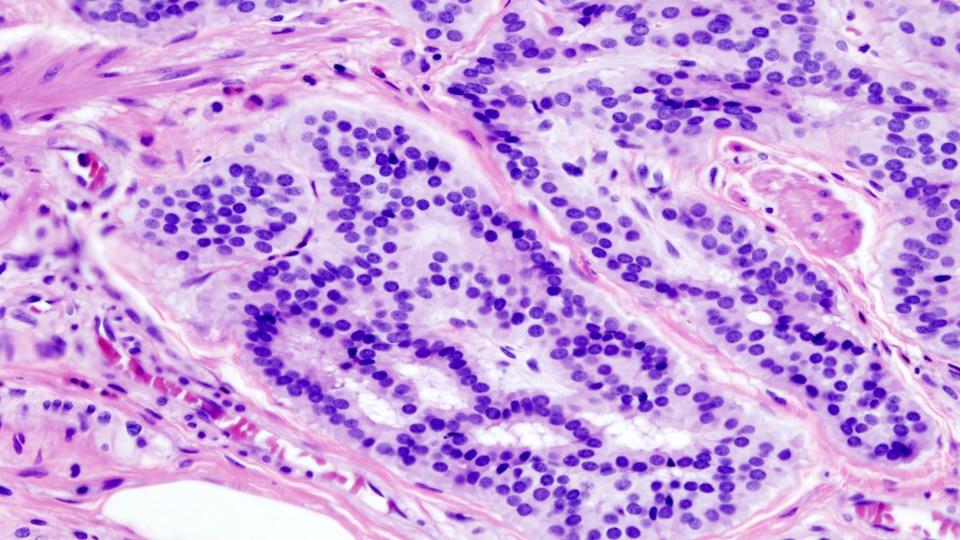Deep learning AI predicts response to cancer treatment

Histopathologic image of colonic carcinoid stained by hematoxylin and eosin.
Artificial intelligence software developed by Pangea Biomed can predict the chances that a patient will respond to cancer treatment by looking at tumour histopathology images.
That is the finding of a study published in Nature Cancer, which tested the ability of Pangea Bio’s ENLIGHT-DP to predict patients’ responses based on tumour samples that the software had never been trained on or seen before.
The software combines a deep-learning framework called DeepPT that predicts which genes are expressed in a tumour from slides with haematoxylin and eosin (H&E) staining, doing away with the need to carry out expensive RNA sequencing.
Based on that prediction, Pangea Bio’s ENLIGHT AI was used to come up with recommendations for targeted or immune-based treatment.
The researchers found that, if ENLIGHT DEEP-PT predicted that a patient would respond to a given therapy, they would indeed be two to five times more likely to respond than a patient who was predicted not to respond to it. That pattern held true across four different treatments spanning six cancer types from a 234-strong patient cohort.
Overall, the response rate among patients matched to their treatment by ENLIGHT-DP was 39.5% higher than the baseline response rate, according to the study results.
According to Pangea Bio, existing approaches for predicting treatment response directly from histopathology slides are limited due to a need for large datasets of matched imaging and response data for each specific treatment, which are often unavailable.
This scarcity also raises questions about how applicable these approaches are for different patient populations and treatment regimens, said the Tel Aviv, Israel-based start-up. By avoiding the need for large datasets, ENLIGHT-DP could make it easier for clinicians to recommend therapies for their patients more quickly, potentially improving results.
“These findings highlight the potential of using AI and digital pathology to enhance precision oncology, making advanced cancer treatment predictions more accessible and accurate,” said Tuvik Beker, chief executive of Pangea Bio.
He also noted that the method has the potential to provide rapid and precise treatment recommendations, particularly for low- and middle-income countries (LMICs) where access to cancer diagnostics can be limited.
The study was carried out by Pangea, along with researchers from the Australian National University and the US National Cancer Institute.
“Sometimes doctors and patients don’t have that much time – there’s a need to start treatment right away,” commented Eytan Ruppin, chief of the NCI’s Cancer Data Science Laboratory. “ENLIGHT DEEP-PT analysis can be done in any place. Just imagine the impact if indeed it is proven beneficial in prospective studies, as we hope.”













